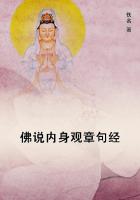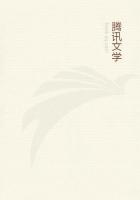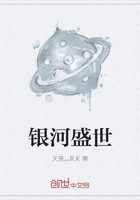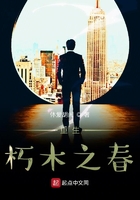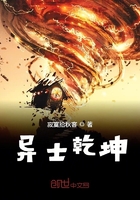"Well," said Franz to him; "there is the beginning of an adventure.""Laugh if you please -- I really think so.So I will not abandon this bouquet.""Pardieu," returned Franz, laughing, "in token of your ingratitude." The jest, however, soon appeared to become earnest; for when Albert and Franz again encountered the carriage with the contadini, the one who had thrown the violets to Albert, clapped her hands when she beheld them in his button-hole."Bravo, bravo," said Franz; "things go wonderfully.Shall I leave you? Perhaps you would prefer being alone?""No," replied he; "I will not be caught like a fool at a first disclosure by a rendezvous under the clock, as they say at the opera-balls.If the fair peasant wishes to carry matters any further, we shall find her, or rather, she will find us to-morrow; then she will give me some sign or other, and I shall know what I have to do.""On my word," said Franz, "you are wise as Nestor and prudent as Ulysses, and your fair Circe must be very skilful or very powerful if she succeed in changing you into a beast of any kind." Albert was right; the fair unknown had resolved, doubtless, to carry the intrigue no farther; for although the young men made several more turns, they did not again see the calash, which had turned up one of the neighboring streets.Then they returned to the Rospoli Palace; but the count and the blue domino had also disappeared; the two windows, hung with yellow damask, were still occupied by the persons whom the count had invited.At this moment the same bell that had proclaimed the beginning of the mascherata sounded the retreat.The file on the Corso broke the line, and in a second all the carriages had disappeared.Franz and Albert were opposite the Via delle Maratte; the coachman, without saying a word, drove up it, passed along the Piazza di Spagni and the Rospoli Palace and stopped at the door of the hotel.Signor Pastrini came to the door to receive his guests.Franz hastened to inquire after the count, and to express regret that he had not returned in sufficient time; but Pastrini reassured him by saying that the Count of Monte Cristo had ordered a second carriage for himself, and that it had gone at four o'clock to fetch him from the Rospoli Palace.The count had, moreover, charged him to offer the two friends the key of his box at the Argentina.Franz questioned Albert as to his intentions; but Albert had great projects to put into execution before going to the theatre; and instead of ****** any answer, he inquired if Signor Pastrini could procure him a tailor."A tailor," said the host; "and for what?""To make us between now and to-morrow two Roman peasant costumes," returned Albert.The host shook his head."To make you two costumes between now and to-morrow? I ask your excellencies' pardon, but this is quite a French demand; for the next week you will not find a single tailor who would consent to sew six buttons on a waistcoat if you paid him a crown a piece for each button.""Then I must give up the idea?"
"No; we have them ready-made.Leave all to me; and to-morrow, when you awake, you shall find a collection of costumes with which you will be satisfied.""My dear Albert," said Franz, "leave all to our host; he has already proved himself full of resources; let us dine quietly, and afterwards go and see `The Algerian Captive.'""Agreed," returned Albert; "but remember, Signor Pastrini, that both my friend and myself attach the greatest importance to having to-morrow the costumes we have asked for." The host again assured them they might rely on him, and that their wishes should be attended to; upon which Franz and Albert mounted to their apartments, and proceeded to disencumber themselves of their costumes.Albert, as he took off his dress, carefully preserved the bunch of violets; it was his token reserved for the morrow.The two friends sat down to table; but they could not refrain from remarking the difference between the Count of Monte Cristo's table and that of Signor Pastrini.Truth compelled Franz, in spite of the dislike he seemed to have taken to the count, to confess that the advantage was not on Pastrini's side.
During dessert, the servant inquired at what time they wished for the carriage.Albert and Franz looked at each other, fearing really to abuse the count's kindness.The servant understood them."His excellency the Count of Monte Cristo had," he said, "given positive orders that the carriage was to remain at their lordships' orders all day, and they could therefore dispose of it without fear of indiscretion."They resolved to profit by the count's courtesy, and ordered the horses to be harnessed, while they substituted evening dress for that which they had on, and which was somewhat the worse for the numerous combats they had sustained.This precaution taken, they went to the theatre, and installed themselves in the count's box.During the first act, the Countess G---- entered.Her first look was at the box where she had seen the count the previous evening, so that she perceived Franz and Albert in the place of the very person concerning whom she had expressed so strange an opinion to Franz.Her opera-glass was so fixedly directed towards them, that Franz saw it would be cruel not to satisfy her curiosity; and, availing himself of one of the privileges of the spectators of the Italian theatres, who use their boxes to hold receptions, the two friends went to pay their respects to the countess.Scarcely had they entered, when she motioned to Franz to assume the seat of honor.Albert, in his turn, sat behind.
"Well," said she, hardly giving Franz time to sit down, "it seems you have nothing better to do than to make the acquaintance of this new Lord Ruthven, and you are already the best friends in the world.""Without being so far advanced as that, my dear countess,"returned Franz, "I cannot deny that we have abused his good nature all day.""All day?"

